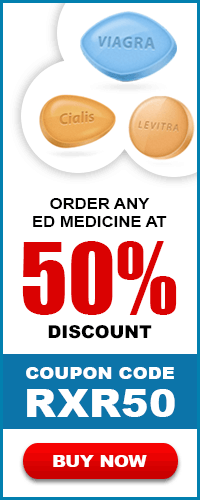C1 Desease
About the Disease:
Clostridium Difficile Colitis, or C. Difficile, is an infection in your colon which is generally caused due to bacteria. Various types of bacteria are present inside the colon, which creates a healthy balance between good and bad bacteria. In case C. Difficile bacteria increase quickly, this can disturb healthy balance of colon. And later can cause the lining of the colon to swell, leading to infection.
Causes of Disease:
The bacterium has two forms, an active, infectious form which is difficult to survive in the environment for a longer period of times, and a non-active, "noninfectious" form, which is also called a spore, and can live in surrounding for prolonged periods. Although these spores are not liable to spread infection directly, they are ingested or transformed into the active or infectious form.
C. difficile germs or bacteria’s are found frequently in: hospitals, extended care facilities, nursing homes and nurseries for newborn infants. The bacteria’s can be found on: bedpans, linens, furniture, fingernails, floors, toilet seats, stethoscopes, rings (jewelry), diaper pails, telephones and infants' rooms. Pets can also carry the bacteria’s. Thus, these environments are a hot on ready source for infection with these bacteria.
Signs & Symptoms of C Diff (Clostridium Difficile Colitis)
Diarrhea is the most common symptom of this type of infection. One may have bad-smelling diarrhea many times a day. Blood, mucus, or pus in bowel movements may be observed. You may also experience any of the following:
- Fever or high cramping pain in your abdomen
- Nausea or vomiting kind of feeling
- Dehydration due to loss of too much body fluid
Severe diarrhea also can lead to dehydration and confusion in the electrolytes which are minerals in the body. Rarely, serious colitis can held to life-threatening difficulties such as megacolon like markedly dilated colon, peritonitis like inflammation of the lining of the abdominal, and perforation of the colon.
Below listed are some antibiotics which frequently lead to C. difficile colitis infections. The antibiotics are: ampicillin, cephalosporins (such as cephalexin [Keflex]) and amoxicillin.
Antibiotics that occasionally cause Infection due to these bacteria are: penicillin, quinolones such as ciprofloxacin (Cipro), erythromycin and trimethoprim (Primsol).
How Clostridium Difficile Colitis diagnosed?
- Bowel movement tests: A sample of your bowel movement should be sent to a lab for testing on. This test may result in the kind of bacteria due to which you may be suffering from illness, and helps the healthcare providers to treat you at appropriate way.
- Blood tests: Blood tests can result in signs of any infection. The blood could be collected from a blood vessel in your hand, arm, or the bend in your elbow.
- Colonoscopy or sigmoidoscopy: Extension is a long, bendable tube with a light on the end. The scope may also include a camera on it. During a colonoscopy or sigmoidoscopy, the practice is to put into your anus and moved forward leading to your enlarge colon. Healthcare providers if finds issues in taking pictures, and collect samples which are further shipped to the lab for tests.
- CT scan: An x-ray machine helps a computer to capture pictures of your colon. Post inhibiting the pictures, you may be injected dye through an IV. The dye is used to keep colon showing up better in pictures. People who are found allergic to shellfish like lobster, crab, or shrimp are proved to be allergic to this dye.
Expected Duration of Disease:
Doctors generally work on patients who relapse with in next 10 or 14 day course of metronidazole or vancomycin, and a majority of patients so treated will recover. Still, some patients will have another recurrence. Treatment options for multiple relapses will have to be practiced by your health care provider.
Treatment:
The main purpose of treatment is to improve the healthy harmony of bacteria to your colon. This works positively in controlling your diarrhea. You may need the following:
- Antibiotics: these work by treating or inhibiting an infection which may be caused by bacteria. If antibiotics are the main reason of causing C. difficile infection, one must stop having those and switch to a various antibiotic.
- Oral rehydration therapy: Drinking plenty of liquids to avoid dehydration is highly recommended. Drinking an oral rehydration solution (ORS) is also proved to work well on C Diff (Clostridium Difficile Colitis). An ORS inhibits appropriate amounts of water, salts, and sugar which required being ousted body fluids.
- Immune globulin medicine: Intake of this will help you to enhance your immune system in case you are suffering from severe C. Difficile infections.
- Surgery: If your infection is severe or has damaged your colon, the last step may include surgery called colectomy. During surgery, part of your colon is completely removed.
Preventions from getting affected by the disease:
- Washing hands thoroughly: Rinse your hands regularly with germ-killing soap and warm, water. Alcohol-based hand rubs are hard to get over with C. Difficile bacteria type. Consistently rinse your hands thoroughly after using the toilet, diaper a child and pre prepare or serve food. Tell anyone who touches you to wear gloves and wash their hands.
- Clean surfaces using bleach: Clean tabletops, desks, and other surfaces pre getting them into use. Cleaning them with chlorine-based disinfectants, such as household bleach will clean them thoroughly.
Avoid the spread of bacteria: Do not share any things with other people. Use maximum disposable items, like paper plates and so on. Do this until you completely recover from diarrhea.






